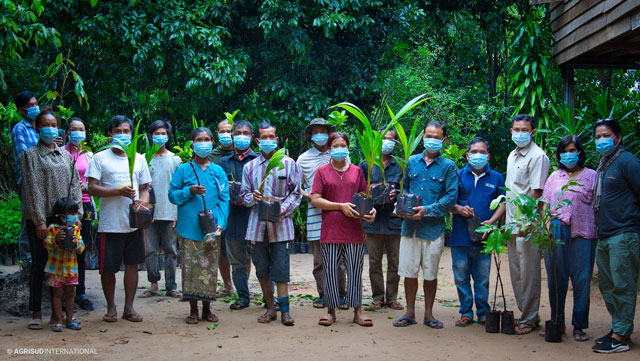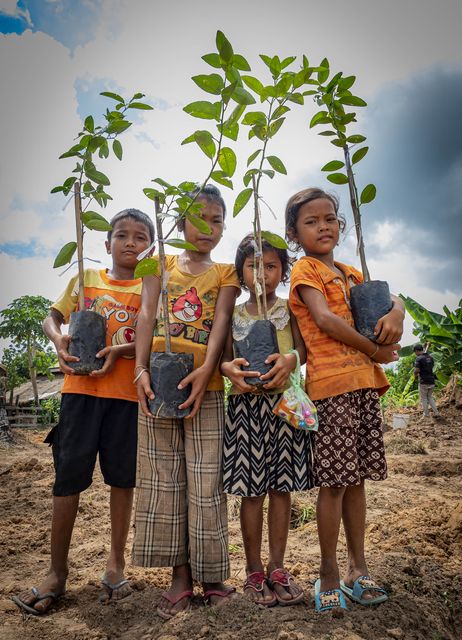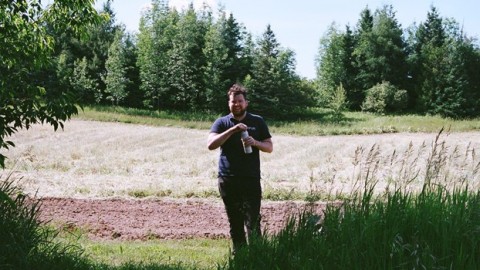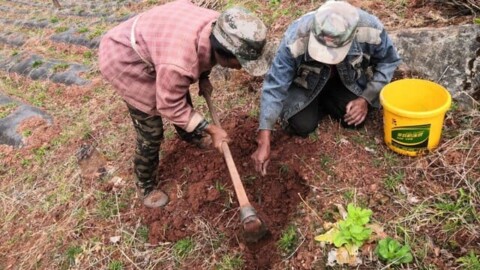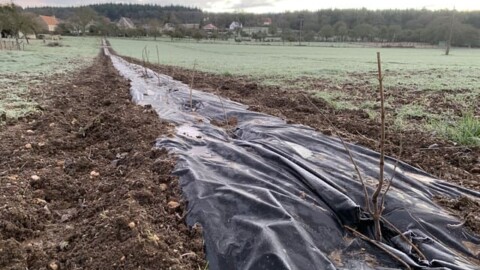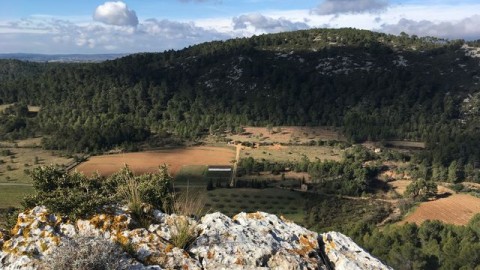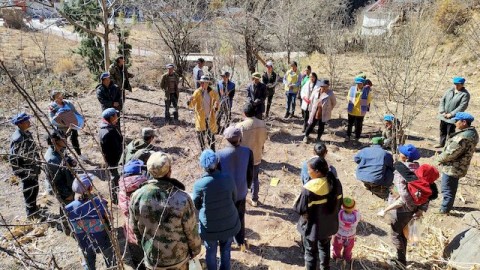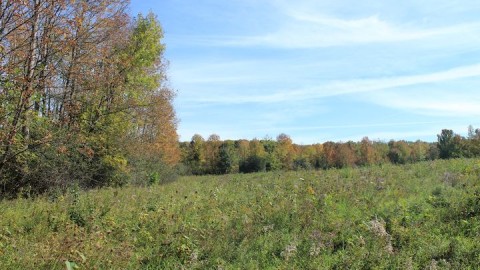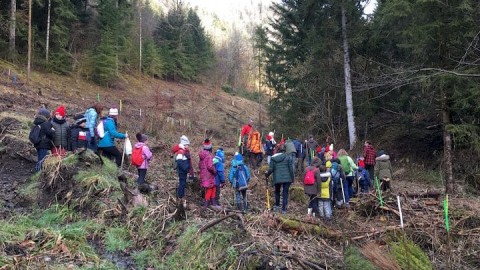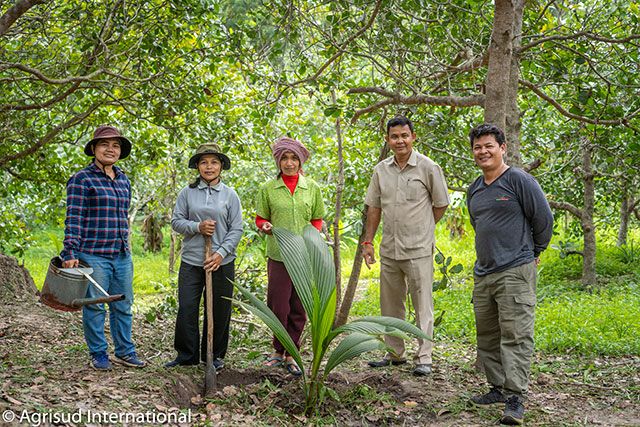
Phnom Kulen National Park, Cambodia, Novembre 2022
Phnom Kulen National Park is facing serious environmental and socio-economic challenges, as well as having to protect its unique archaeological heritage. By planting trees in association with crops (agroforestry), the project aims to preserve the natural resources of the site, improve food security for local people, and generate sustainable income for families. In figures, this represents 176 farms benefitting from the project and 11,173 trees planted.
In 2021, after having been trained in planting techniques, management of organic matter, and how to produce biopesticides and biofertilizers, the growers then started planting.
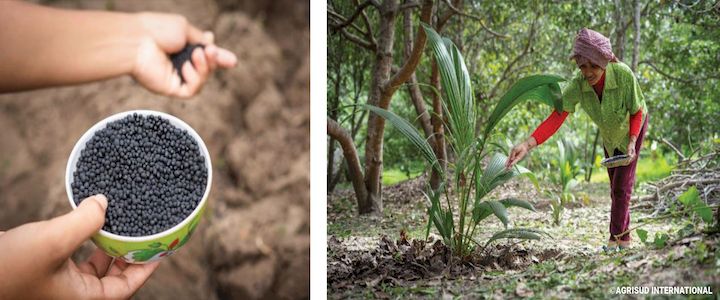
One year later, have the young trees survived? The project technicians monitored their growth and provided further training on maintenance techniques such as hoeing, to boost soil fertilization, and so-called ‘formation’ pruning to ensure the trees grow steadily and in good health (pest management).
The dry season after planting campaigns is always a critical time for the survival of young trees. For this, the growers received plenty of advice based on best practices (mulching, watering basins, weeding).
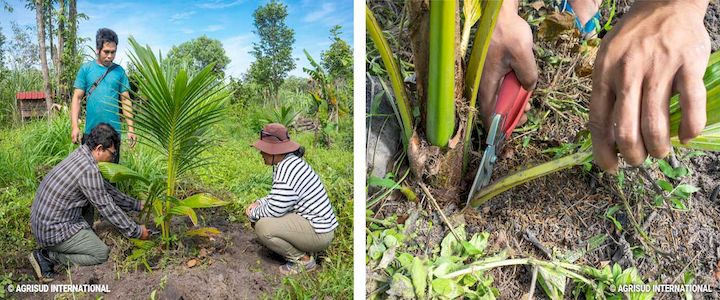
Nevertheless, more young trees died than expected. The main causes of mortality were, on the one hand, a lack of water because many springs had dried up, and on the other, the transferal time from the nurseries – too long because of travel restrictions during lockdown.
So after assessing the survival rate, a replanting phase began to reach the aim of 6,200 long-lasting trees on the project. Sixty-eight percent of the agroforestry species and 78% of the forest species survived, which remains a decent survival rate. It represents 5,793 trees out of the 8,281 planted.
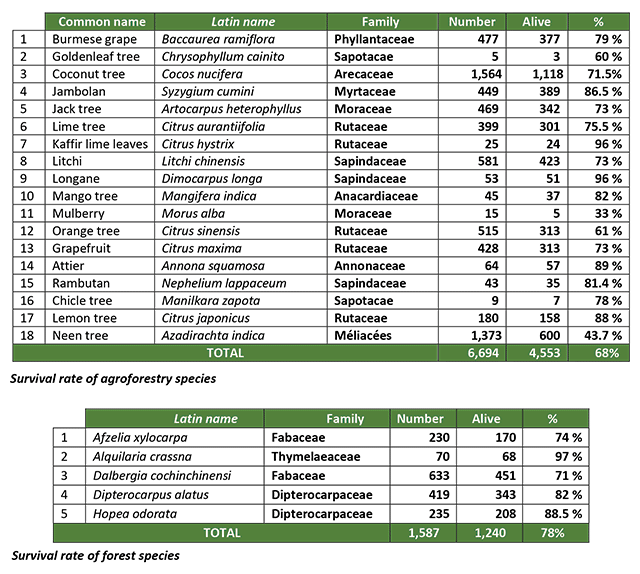
A new order for 4,140 agroforestry plants was placed with nurseries to replenish the plots. It is made up of the following tree plants: 400 limes, 400 orange, 20 jackfruit, 800 coconut, 2,500 neem, and 20 sapodillas. The coconut and neem plants are especially in demand as explained in our previous article.
Testimonial: meeting with a family one year after the planting campaign
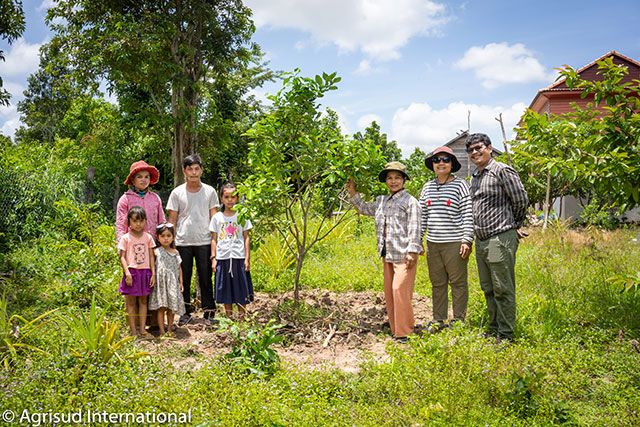
For several years now, Cambodia has been suffering from increasingly extreme climate events with very high temperatures and a lack of water resources.
Luckily, this family’s farm is near a water resource that continued to function during the dry season. This resulted in a 100% survival rate, which is not the case for all the other beneficiaries. Thus, the 32 agroforestry seedlings planted – 5 grapefruit, 10 jackfruit, 15 coconut, and 2 cinnamon apple trees survived.
This farmer is delighted with results obtained andthe follow-up and support from the project technicians; he is looking forward to first harvesting in two years’ time.
Previously in Phnom Kulen National Park, Cambodia


